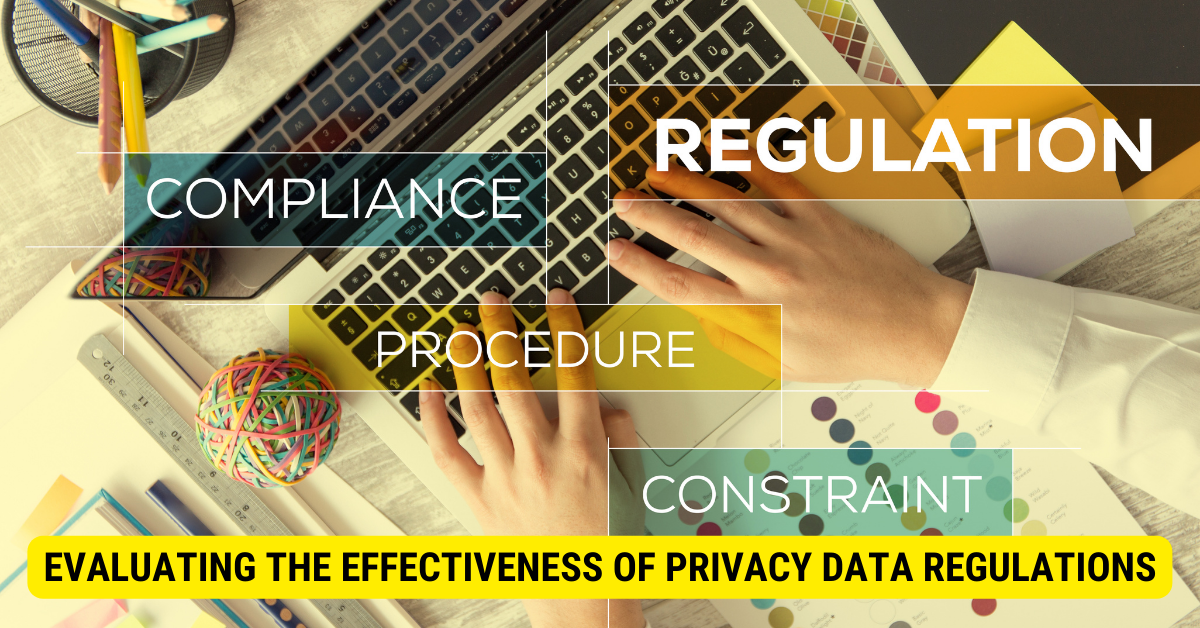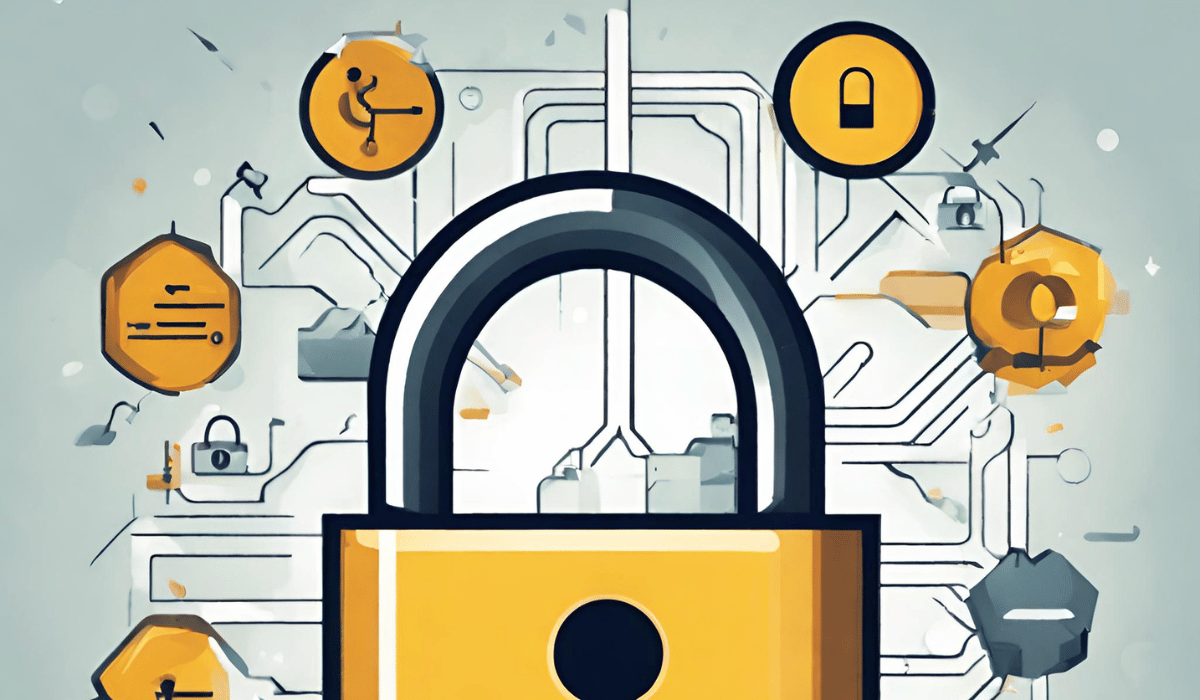Yes, privacy data regulations generally work to enhance data protection and safeguard individuals’ privacy rights.
Data privacy has become a pressing concern for individuals and organizations in today’s digital age. With the increasing prevalence of data breaches and cyber threats, governments worldwide have enacted privacy data regulations to protect users’ personal information. But do these regulations work? Are they effective in safeguarding user data and maintaining privacy in the digital realm? I will explore the impact and effectiveness of privacy data regulations in an official “biz form” to help you rank high on Google.
Understanding Privacy Data Regulations
Privacy data regulations are legal frameworks designed to govern how organizations collect, process, store, and share personal information. These regulations are crafted to ensure transparency, accountability, and user consent, giving individuals greater control over their data.
Some prominent privacy data regulations include the European Union’s General Data Protection Regulation (GDPR), the California Consumer Privacy Act (CCPA), and the Health Insurance Portability and Accountability Act (HIPAA) in the United States.
Evaluating the Effectiveness Of Privacy Data Regulations

The effectiveness of privacy data regulations lies in their ability to achieve the following key objectives:
-
Data Protection and Security

Privacy data regulations mandate organizations to implement robust security measures to safeguard user data. This includes encryption, secure data storage, and measures to prevent unauthorized access.
-
User Consent and Control
These regulations empower users to make informed decisions about how their data is collected and used. Companies must obtain explicit consent from users before processing their data.
-
Data Breach Reporting and Accountability

Privacy data regulations require organizations to promptly report data breaches, enhancing transparency and enabling users to take necessary precautions.
-
Global Standardization
With data flowing across international borders, privacy data regulations strive to establish global data protection standards, ensuring consistency and harmonization.
-
Legal Compliance
By adhering to privacy data regulations, organizations avoid legal repercussions and potential fines for non-compliance.
Real-World Impact
Privacy data regulations have significantly impacted data protection and user rights. Let’s explore some real-world examples of their effectiveness:
-
Greater Transparency
Companies are now more transparent about their data collection practices, informing users about the collected data types and how they will be used.
-
Enhanced User Consent
Users have greater control over their data, with the ability to grant or revoke consent as needed.
-
Timely Data Breach Reporting
Privacy data regulations have improved the reporting and handling of data breaches, allowing users to take appropriate action promptly.
-
Accountability and Penalties
Non-compliance with privacy data regulations can lead to severe penalties, encouraging organizations to prioritize data protection.
-
Global Adoption
Several countries and regions have adopted privacy data regulations inspired by existing frameworks, fostering a global commitment to data protection.
Challenges and Areas for Improvement
While privacy data regulations have made significant strides, several challenges and areas for improvement remain:
-
Compliance Complexity
Complying with multiple regulations across different jurisdictions can be complex and resource-intensive, especially for multinational companies.
-
Technology Advancements
As technology evolves, new data collection methods and privacy challenges emerge, necessitating continuous regulation updates.
-
Privacy vs. Innovation
Maintaining data privacy and fostering technological innovation remains a delicate challenge.
-
Enforcement and Consistency
The enforcement of privacy data regulations can vary, and maintaining consistent enforcement across all organizations is essential.
The Road Ahead
The journey toward effective data protection and privacy is ongoing. Policymakers, businesses, and individuals must work together to address the challenges and capitalize on opportunities for improvement.
Key Takeaways
- Data Privacy Regulations Matter: Privacy data regulations are essential in safeguarding user data, providing transparency, and empowering users with control over their personal information.
- Global Impact: Privacy data regulations have sparked a global movement towards data protection, with many countries adopting similar frameworks.
- User Empowerment: These regulations give users greater control over their data, ensuring their consent is obtained before data processing.
- Data Breach Reporting: Privacy data regulations require prompt reporting of data breaches, enhancing transparency and enabling users to take preventive measures.
- Challenges Persist: While privacy data regulations have significantly progressed, challenges like compliance complexity and technology advancements require continuous improvement.
FAQs
Q: Do privacy data regulations apply to all businesses?
A: Yes, privacy data regulations typically apply to businesses of all sizes that handle personal data, regardless of location.
Q: How do privacy data regulations impact user consent?
A: Privacy data regulations mandate that organizations obtain explicit user consent before collecting and processing data.
Q: What are the consequences of non-compliance with privacy data regulations?
A: Non-compliance with privacy data regulations can result in severe penalties, fines, and damage to a company’s reputation.
Q: How can businesses ensure compliance with multiple privacy data regulations?
A: Businesses can ensure compliance by conducting thorough audits, appointing data protection officers, and staying informed about regulatory updates.
Q: Are privacy data regulations effective in preventing data breaches?
A: While privacy data regulations enhance data security and breach reporting, preventing data breaches requires robust cybersecurity measures.
Q: Do privacy data regulations stifle innovation?
A: Striking a balance between data privacy and innovation is crucial, and privacy data regulations should encourage responsible technological advancements.
Q: Are privacy data regulations a global standard?
A: Privacy data regulations have inspired discussions on global data protection standards, but some differences persist between jurisdictions.
Q: How can individuals exercise their data rights under privacy data regulations?
A: Individuals can exercise their data rights by requesting access to their data, correcting inaccuracies, and requesting data deletion when applicable.
Q: Can privacy data regulations prevent all cyber threats?
A: While privacy data regulations improve data protection, no regulation can eliminate all cyber threats. Proactive cybersecurity measures are essential.
Q: How can companies build trust with users under privacy data regulations?
A: Building trust requires transparency, responsible data handling, and commitment to comply with privacy data regulations.
Conclusion
Privacy data regulations enhance data protection, user control, and transparency. They have significantly improved data handling practices and user rights, setting a benchmark for global data protection.
As privacy concerns continue to evolve, privacy data regulations must evolve too. By staying proactive and adapting to emerging challenges, we can build a more secure digital environment that respects and protects user privacy.
By implementing privacy data regulations effectively, organizations can not only comply with the law but also earn the trust and loyalty of their customers. Let us continue to prioritize data privacy and embrace the responsibility of safeguarding user information in the digital era.
